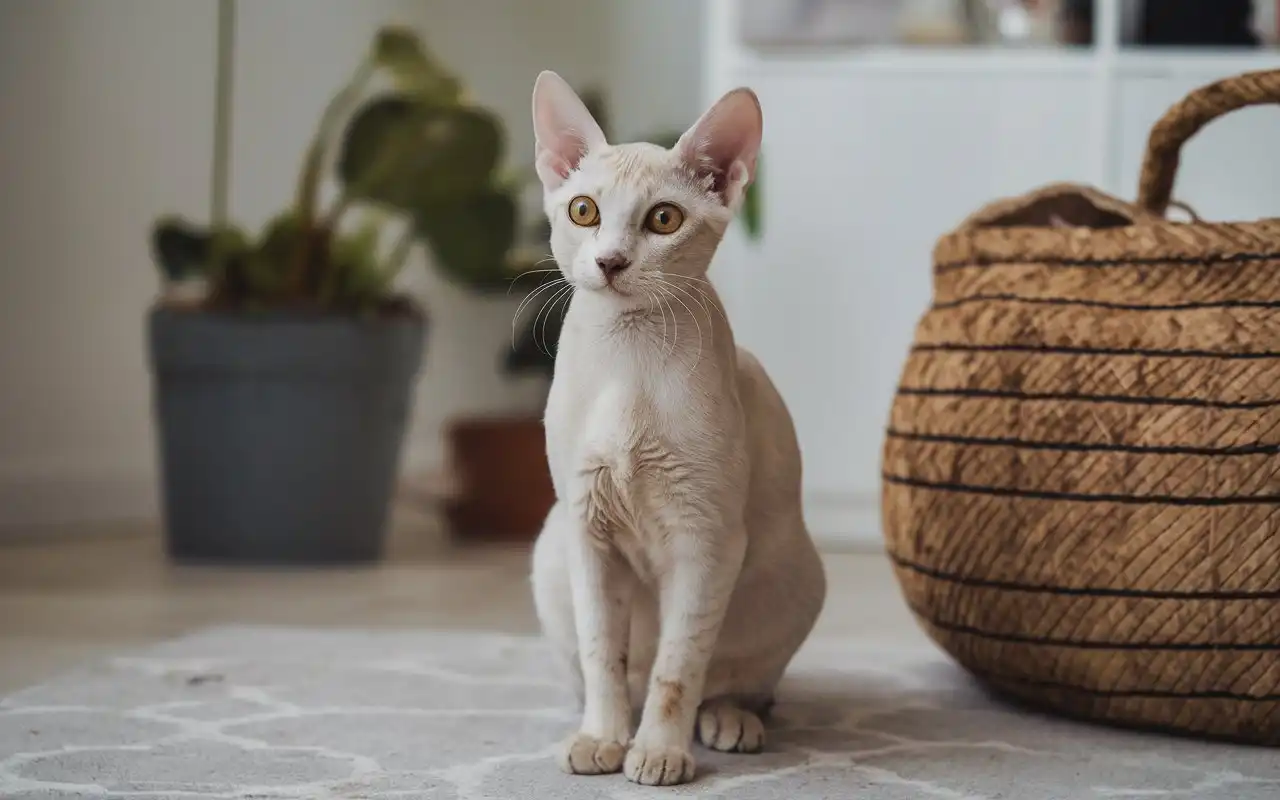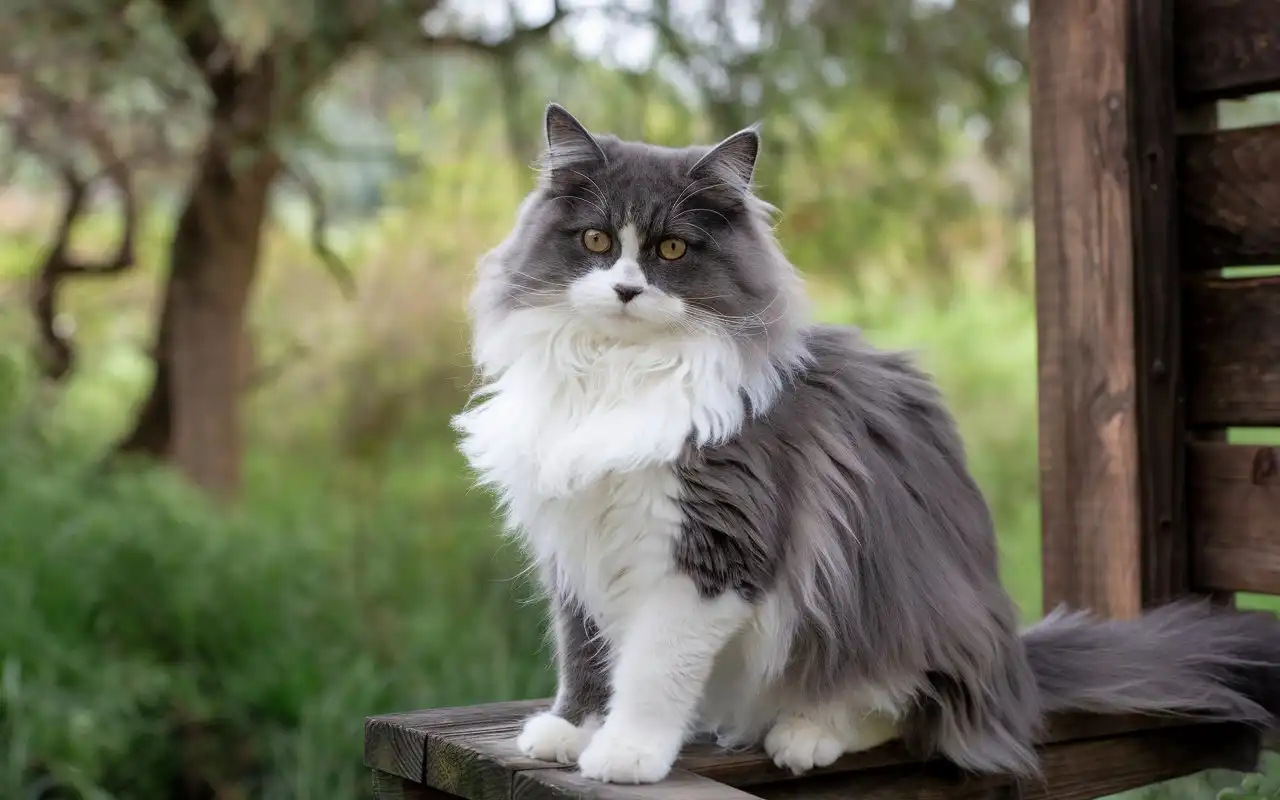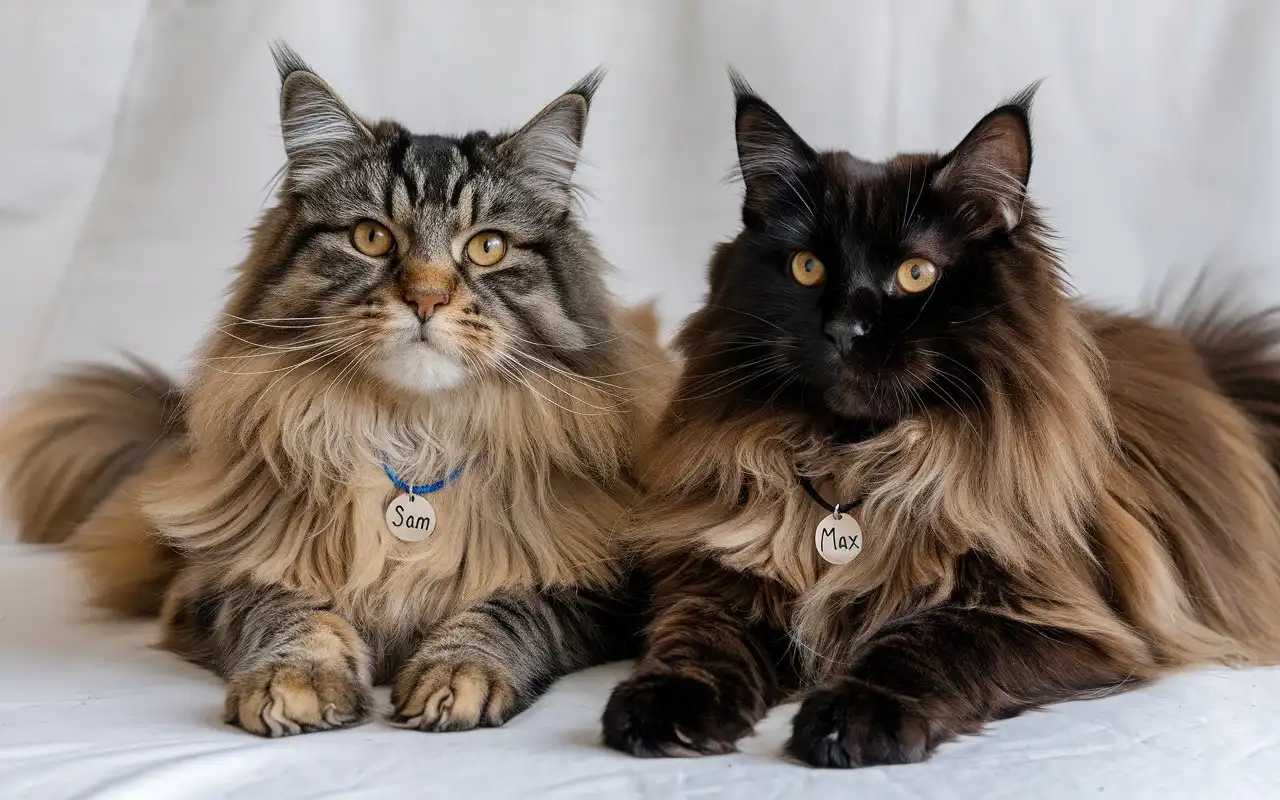Cats have a delicate and highly sensitive sense of smell that is well-known. Smells that cats hate can help manage their behavior. Use them to keep cats away from certain areas in your home or garden. This article will explore 10 smells that cats hate. We’ll explain why they dislike them. We’ll also give tips on using these scents to keep cats out of unwanted areas.
Table of Contents
Why Cats Have a Sensitive Sense of Smell
Cats have a very sensitive sense of smell. They have about 200 million scent receptors, while humans have 5 million. Their keen sense of smell is vital for hunting and communication. Cats use their sense of smell to identify prey, navigate, and interact with other cats. However, their sensitivity means that some odors can be overwhelming.
For example, humans may like scents like citrus or lavender. But, cats dislike them. They can greatly improve the home for both cats and their owners. Be mindful of the smells in your home. Strong scents can stress your cats.
By acknowledging their unique scent preferences, you can create a better space. It will respect a cat’s sensitive nose. But it will let you enjoy your favorite scents. Knowing the scents that cats dislike helps us understand their behavior. It also creates a safe, comfortable space for them to thrive.
Smells That Cats Hate: The Top 10 Offenders
Cats are not fond of strong, overpowering odors. Here are the top 10 smells that cats hate. I will explain why these scents repel them.

1. Citrus Scents
Cats, with their sensitive noses, hate citrus scents. This includes lemon, lime, and orange. These sharp, acidic smells can overwhelm cats. So, they repel them from unwanted areas. Pet owners can enjoy using citrus. It can help to keep their cats away from gardens and furniture.
Using Citrus Peels
One effective method is to scatter fresh lemon or orange peels in your garden or on furniture. The strong scent from the peels deters curious cats. It makes these areas uninviting to them. Additionally, the peels can decompose, enriching the soil while simultaneously warding off pets.
Citrus-Based Sprays
Another option is to create a homemade citrus spray. By diluting citrus juice with water, you can create a fragrant repellent. Spray this mixture in areas where you want to discourage your cat from roaming. It keeps your cat at bay. It also gives a nice, fresh scent for people. It’s a win-win for pet owners.

2. Vinegar
Vinegar is well known not just for its culinary uses but also for its effectiveness as a natural cat repellent. The strong, acrid smell of vinegar can be unpleasant for cats. It can help pet owners stop unwanted behaviors, like scratching furniture or entering restricted areas.
The Effectiveness of Vinegar
Cats have highly sensitive noses, and the pungent odor of vinegar is often overwhelming for them. This makes vinegar an excellent deterrent in various situations. It can discourage cats from scratching furniture or climbing onto counters. This helps protect your belongings and keep some areas of your home cat-free.
How to Use Vinegar Safely
To harness the repellent properties of vinegar, mix equal parts of vinegar and water in a spray bottle. This solution can be applied to problem areas, such as carpets, doorways, or furniture. Spray it lightly where your cat tends to roam. The smell is strong for humans and pets. But, it fades quickly. So, it’s a safe and effective way to manage your cat’s behavior without using harmful chemicals.
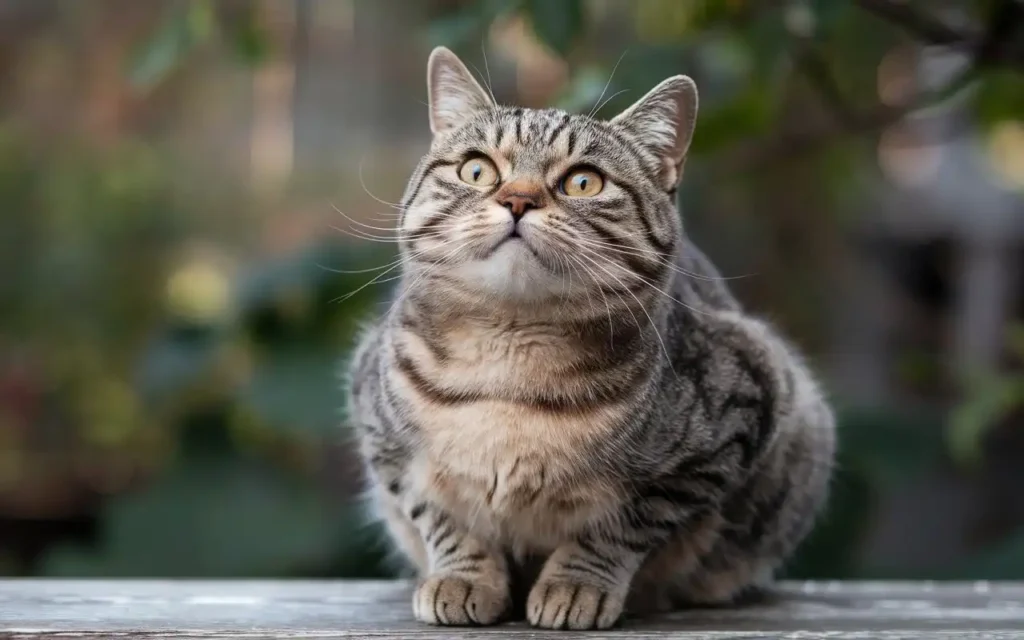
3. Eucalyptus
Eucalyptus has a fresh, menthol-like aroma. It’s in many household products and aromatherapy. However, this scent is one that cats generally detest. The strong scent of eucalyptus can overwhelm cats. But it is a good way for pet owners to keep their cats at bay.
The Unpleasant Aroma for Cats
Cats possess a keen sense of smell, and the pungent odor of eucalyptus is often off-putting to them. This scent makes many cats avoid areas with eucalyptus. You can use eucalyptus to deter cats from certain spots in your home or garden.
How to Use Eucalyptus Safely
To use eucalyptus as a repellent, try eucalyptus essential oil. But be cautious. Concentrated oils can harm cats if ingested or applied to their skin. Instead, dilute a few drops of eucalyptus oil in water and use it as a spray in problem areas. Also, planting eucalyptus in your garden can keep cats away. It will help protect your plants and keep your space peaceful.
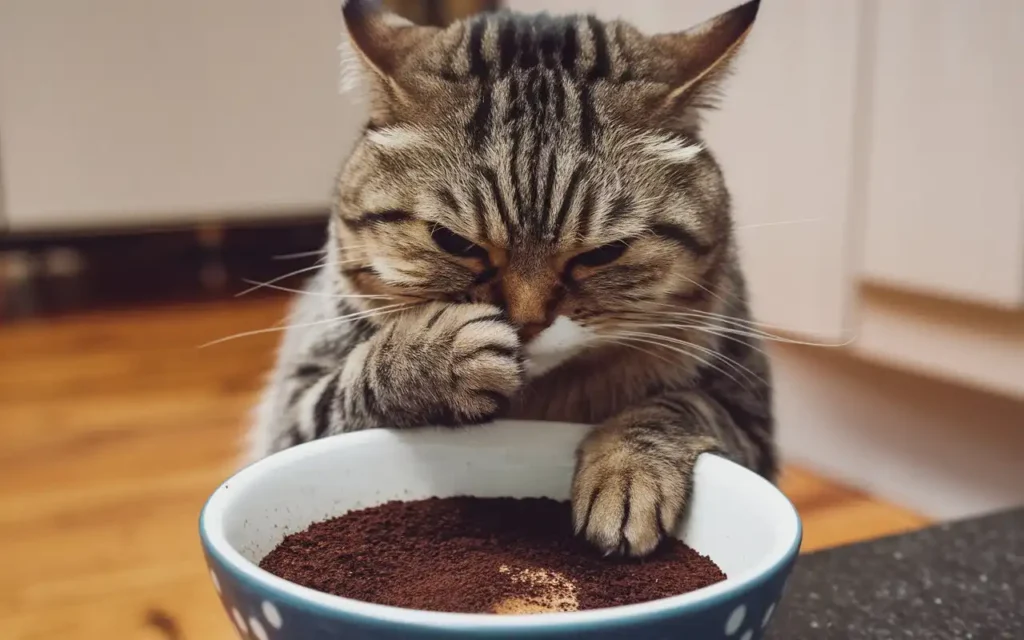
4. Coffee Grounds
Many humans enjoy the rich aroma of fresh coffee. Cats have an entirely different reaction. Cats hate the bitter, earthy scent of coffee grounds. So, it’s a great natural cat deterrent for gardeners.
The Unpleasant Scent for Cats
Cats have a strong sense of smell. The scent of coffee grounds can engulf them. This aversion can keep cats at bay. It will prevent them from digging or lounging in unwelcome areas. Pet owners can use their cats’ dislike of a common scent. It offers a simple way to manage their outdoor behavior.
How to Use Coffee Grounds Effectively
To repel your cat, scatter used coffee grounds where you want to deter it. This could be in flower beds, vegetable gardens, or around shrubs. This method protects your plants. It also improves soil health by adding nitrogen as the coffee grounds decompose. Using coffee grounds is a practical, eco-friendly way to keep cats away. They serve a dual purpose.
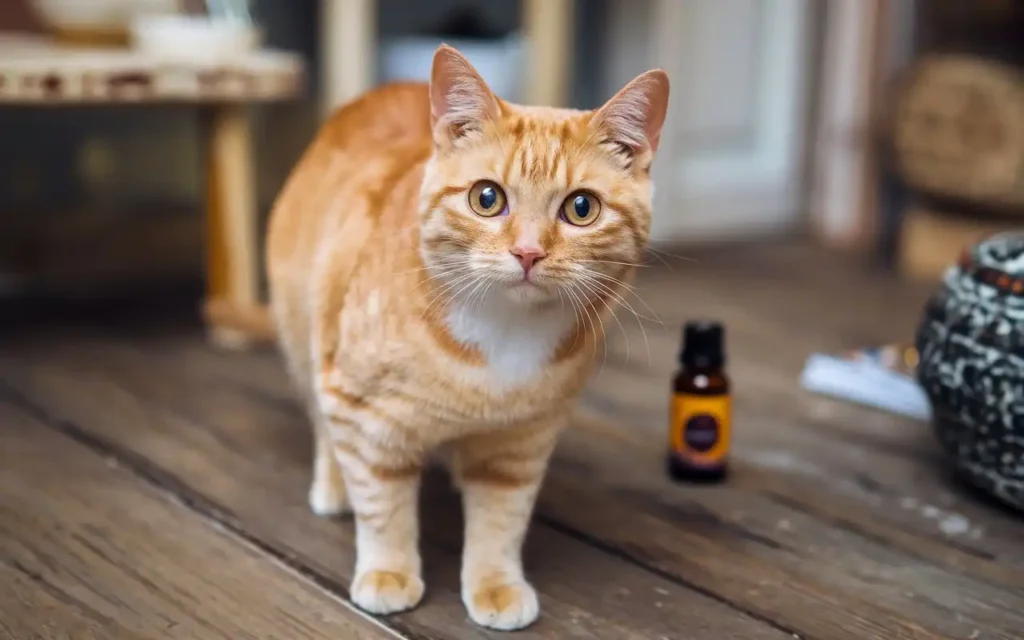
5. Essential Oils
Essential oils have aromatic and therapeutic benefits for humans. But they can be risky for cats. Aromatherapy often uses scents like peppermint, tea tree, and lavender. But cats strongly dislike and may find them irritating. Understanding how to use these oils safely is crucial for pet owners.
The Risks of Essential Oils for Cats
Cats have a unique physiology that makes them particularly sensitive to essential oils. The strong scents can irritate their lungs. This may cause discomfort or bad reactions. Concentrated oils can be toxic if ingested or touched. So, use these products with caution around cats. Even diluted oils can pose risks if cats are exposed frequently.
How to Use Essential Oils Safely
To protect your cat, avoid using essential oils in areas where they have access. If you enjoy diffusing oils, make sure the diffuser is out of reach and used in a well-ventilated space. Consider using cat-safe oil blends or dried herbs. They provide fragrance without risking your pet’s health. If unsure about the safety of certain essential oils for your cat, consult a vet.

6. Garlic and Onions
Garlic and onions are notorious not just for their strong odors, which cats typically detest, but also for their toxicity to felines. The sulfur compounds in these foods can harm pets if ingested. So, pet owners must consider this.
The Repulsive Aroma
Cats have a keen sense of smell. Strong garlic and onion scents can overwhelm them. We can use this aversion to keep cats out of certain areas, especially gardens and flower beds. The smell often deters cats from exploring or digging in these spaces. It provides a natural solution to a common problem for cat owners.
How to Use Garlic and Onions Safely
To repel pests, sprinkle garlic or onion powder around your plants. However, it’s crucial to remember that, in small amounts, these powders are safe to deter cats. But, they should never ingest them. This method has two goals. It keeps cats away. It also avoids the risk of toxicity from eating garlic and onions. Always ensure that your garden remains a safe environment for all pets.

7. Spicy Scents
Cats are known for their sensitive noses, and spicy scents like chili and cayenne pepper are particularly repulsive to them. The strong, fiery aromas of these spices can be overwhelming. They are effective natural deterrents for pet owners wanting to keep cats away from gardens or certain areas.
The Impact of Spicy Scents
The strong scents of chili and cayenne pepper can irritate a cat’s sensitive nose. This discomfort causes them to avoid areas with these spices. Using these spicy aromas can effectively protect plants and flower beds from curious cats. Cats are instinctively averse to anything that overwhelms their senses, and spicy scents fit that bill perfectly.
How to Use Spicy Scents Safely
To employ this method, sprinkle cayenne pepper or chili powder around the edges of the areas you wish to keep cat-free. However, caution is essential; these spices can irritate a cat’s skin or eyes if they come into contact with them. Always monitor your cat in treated areas. Use barriers or signs to keep them safe while using the natural, spicy-scented repellent.

8. Lavender
Lavender is widely known for its calming effects on humans, often used in aromatherapy and relaxation practices. However, when it comes to cats, the floral scent of lavender is one that they typically dislike. This aversion can be effectively utilized as a natural deterrent to keep cats away from certain areas of your home.
The Overpowering Aroma
The strong, sweet fragrance of lavender can be overwhelming for many cats, leading them to avoid spaces where this scent is prevalent. Humans find lavender soothing. Its intensity can irritate a cat’s sensitive nose, making it a good repellent. This lets pet owners use lavender’s scent to keep cats out of their homes.
How to Use Lavender Effectively
To deter your cat, use lavender. Apply lavender essential oils or place dried lavender sachets in the areas you want to protect. You can tuck sachets into furniture, closets, or near entryways to discourage feline exploration. Additionally, be cautious with essential oils, ensuring they are out of reach of your cat, as concentrated oils can be harmful. Using lavender in your décor can help with your cat. It smells nice and can calm your pet.
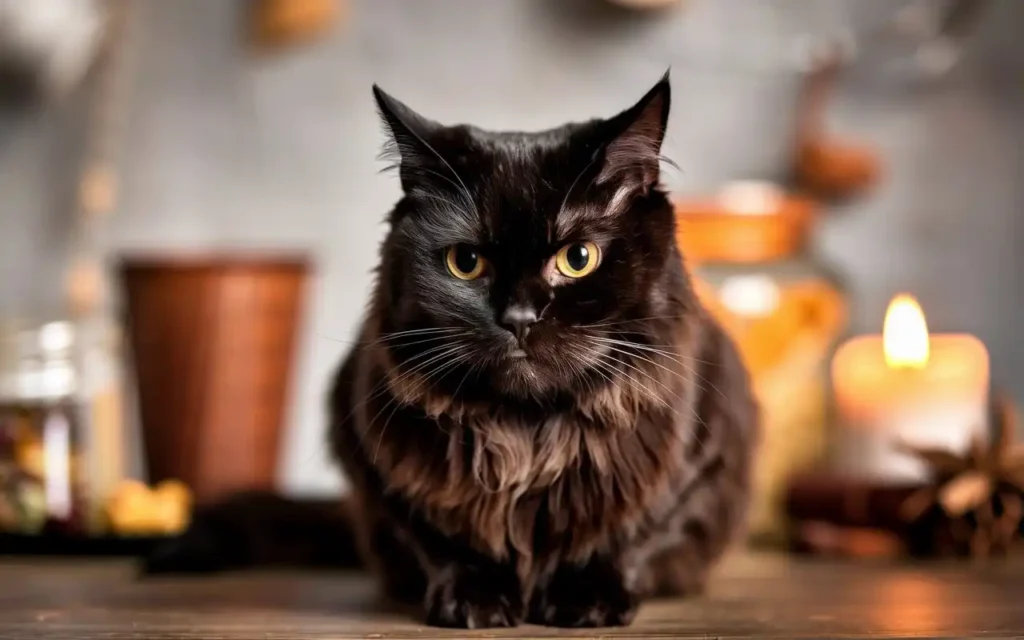
9. Cinnamon
Cinnamon, with its warm and inviting aroma, is often enjoyed by humans in various culinary delights. However, this spice is one of the lesser-known scents that cats find particularly unappealing. The intense and spicy fragrance of cinnamon can effectively deter cats from venturing into certain areas of your home.
The Unpleasant Aroma for Cats
Cats possess highly sensitive noses, and the robust scent of cinnamon can overwhelm them. This aversion makes cinnamon useful for pet owners. It can keep their cats away from kitchens, gardens, and furniture. Use this natural repellent to keep areas cat-free. It will prevent problems caused by their presence.
How to Use Cinnamon Safely
To utilize cinnamon as a deterrent, simply sprinkle a small amount in the areas you want to protect from your cat’s exploration. Whether it’s along the edges of your garden beds or around furniture, the scent will likely encourage your cat to steer clear. However, caution is essential. Avoid excessive amounts. Inhaling too much cinnamon can irritate a cat’s respiratory system. By using this spice judiciously, you can enjoy its pleasant aroma while effectively managing your cat’s behavior in your home.

10. Pine
Pine is a scent that many humans associate with freshness and cleanliness, but it is one that cats typically dislike. The strong aroma found in pine-scented cleaners and air fresheners can be overwhelming for felines. Many cat litters contain pine to mask odors. But the scent can sometimes deter cats from using their litter boxes.
The Strong Aroma of Pine
Cats have a heightened sense of smell, and the sharp, resinous scent of pine can be too much for them to handle. This aversion can lead to behavioral issues, such as avoiding their litter box if it smells too strongly of pine. Pine litter controls odors. But, the scent must not be too strong. It should keep the space inviting for your cat.
How to Use Pine Effectively
If your cat avoids the litter box, try a less pungent pine litter or a scent-free option. However, you can still utilize stronger pine products in other areas of your home to keep cats away from certain spaces. For example, pine-scented cleaners can keep cats out of your kitchen and bathroom. They also create a fresh, clean space for people. By understanding how to balance scents, you can effectively manage your cat’s behavior while enjoying the benefits of pine.
Using Smells That Cats Hate to Keep Them Away
We’ve found the top smells that cats dislike. Now, let’s explore how to use these scents to deter your cats from certain areas. The goal is to apply these natural repellents in a way that is safe and non-toxic while effectively keeping cats away.
1. In the Garden
When it comes to protecting your garden, utilizing smells that cats hate can be highly effective. Scents like citrus, coffee grounds, and garlic are excellent natural deterrents.
- Citrus: Cats are particularly averse to the sharp aroma of citrus fruits like lemon and orange. Scatter citrus peels around the edges of your garden or use a diluted citrus juice spray to create a barrier that cats will likely avoid.
- Coffee Grounds: The bitter scent of coffee can also be a powerful deterrent. Sprinkle used coffee grounds around your plants or flower beds to keep cats from digging or using your garden as a litter box. Not only does this method repel cats, but it can also enrich your soil as the grounds decompose.
- Garlic: The strong odor of garlic is another effective deterrent. You can sprinkle garlic powder or use crushed garlic near plants to ward off curious cats. Just be cautious to keep any actual garlic away from their reach, as it can be toxic if ingested.
2. Indoors
You can use smells that cats hate to keep them off your countertops and furniture. They will help keep them away from other areas, too.
- Vinegar: Cats are repelled by the strong, acrid smell of vinegar. A diluted vinegar solution can be sprayed on surfaces where you want to deter your cat. Use equal parts vinegar and water in a spray bottle and lightly mist areas like furniture or near doorways to create a scent barrier.
- Essential Oils: While essential oils can be effective repellents, they must be used with caution around cats. Peppermint and lavender scents can deter cats. But, they should be diluted and kept out of reach to prevent harm. Consider using a diffuser placed in a high location to keep the scent in the air without allowing your cat to access the oil directly.
- Spicy Scents: Scents like cayenne pepper can also be sprinkled in small amounts on surfaces where you want to keep your cat away. However, be careful not to use too much, as inhaling spicy scents can irritate a cat’s respiratory system.
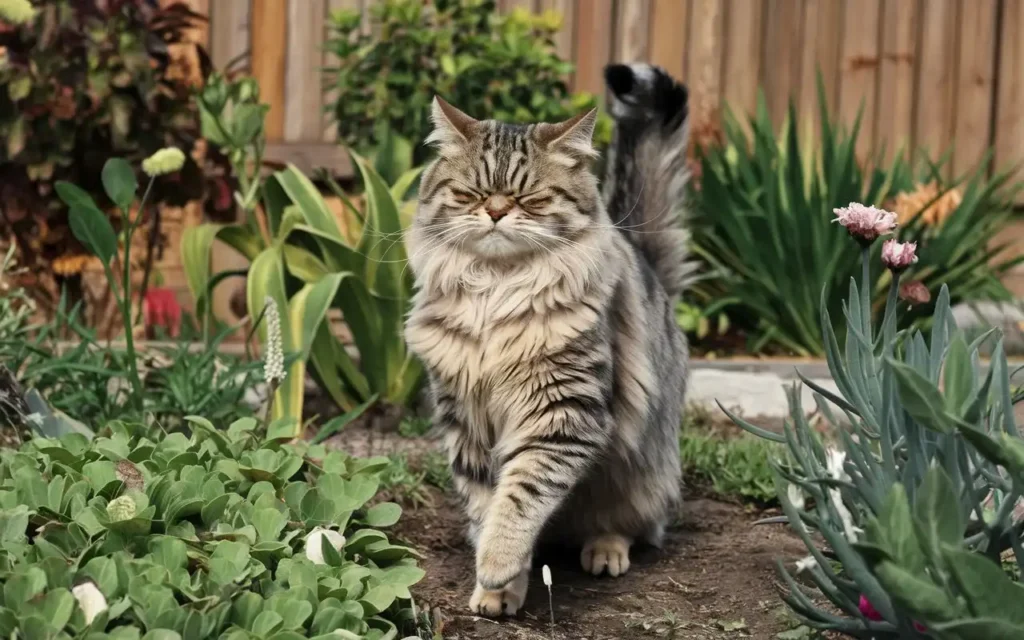
Tips and Ideas for Using Smells That Cats Hate
DIY Natural Cat Repellents
Make a cat repellent using smells that cats hate. It’s a cheap, eco-friendly way to manage your pet’s behavior. For instance, a simple spray made from lemon juice, water, and vinegar can be an effective and safe way to deter cats from jumping on furniture.
Keeping Cats Safe
While using smells that cats hate can be helpful, it’s important to ensure you’re not using anything that could harm your cat. Always avoid toxic substances like essential oils that can cause health issues if ingested. When using natural remedies like garlic or chili, make sure they’re out of reach to avoid accidental ingestion.
Conclusion
Knowing what smells cats hate can help cat owners. It offers a natural way to manage their pets’ behavior. Using these smells can help you keep your cat out of the garden, off the furniture, and away from certain rooms. They can help you maintain a cat-friendly but organized home. Always prioritize your cat’s health and safety with these smells. Avoid anything that could be harmful.


